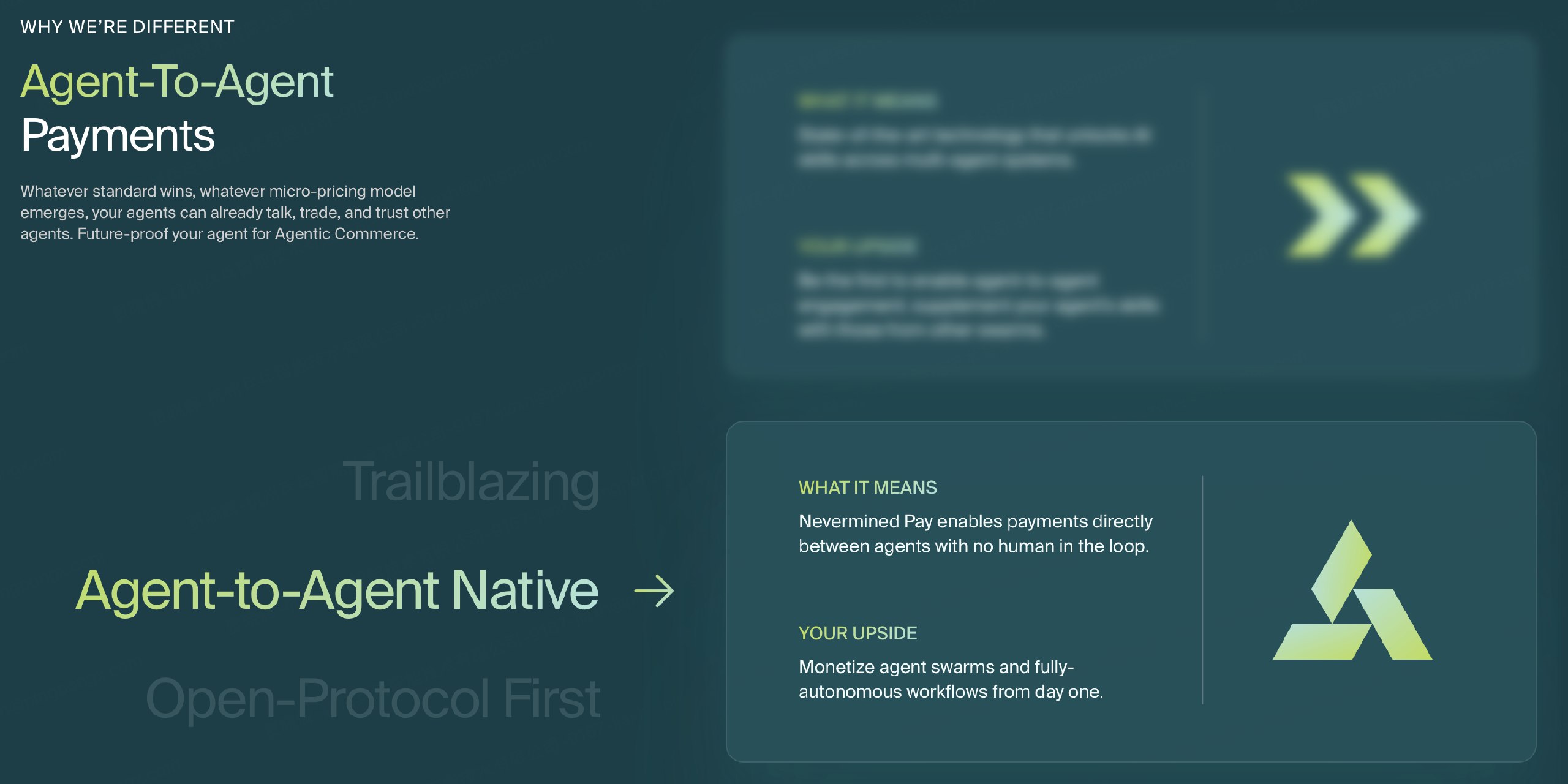The AI Agent Economy: When Machines Start Trading, Who Will Be Their Financial Backbone?
Posted September 3, 2025 by Independent AI Observer ‐ 5 min read

Imagine this: It's 3 AM, and while you're fast asleep, your AI assistant is at work. It just spent $0.02 on a market analysis report, paid another AI $0.05 to optimize your presentation for tomorrow, and at the same time, it earned $0.80 by providing translation services to other AIs. This isn't science fiction. This is the dawn of the AI Agent Economy.
A Paradigm Shift in Progress
We are at a historic turning point. Over the past 20 years, we've witnessed how the internet transformed transactions between people—from cash to PayPal, from bank tellers to mobile apps. Now, an even greater transformation is brewing: the primary actors in transactions are shifting from humans to AI.
The traditional service-call model is simple:
Human User → Top-up Account → Call API → Receive Service
But in the era of AI Agents, this model is being rewritten:
AI Agent A ⟷ Autonomous Transaction ⟷ AI Agent B ⟷ Autonomous Transaction ⟷ AI Agent C
Each AI Agent is an independent economic entity, capable of:
- 🤖 Autonomous Decision-Making: Deciding when to purchase a service.
- 💰 Autonomous Payments: Completing transactions without human intervention.
- 📈 Autonomous Profit-Making: Earning revenue by providing services.
- ♻️ Autonomous Operation: Using earned income to purchase necessary resources.
Why Do AI Agents Need Their Own "Payment System"?
1. Explosive Growth in Transaction Frequency
Imagine this scenario:
You develop an AI Agent that specializes in generating annual summary reports for businesses. On any given day, this Agent might:
- Be called 10,000 times (by different business clients).
- Call the OpenAI API 50,000 times (to generate text).
- Call a data analysis Agent 5,000 times (to get charts).
- Call a formatting Agent 3,000 times (to optimize layout).
This amounts to nearly 70,000 micro-transactions per day. If every transaction required manual approval and payment, the entire system would instantly grind to a halt.
2. The Rise of Micro-payments
In the AI economy, a vast number of transactions might be worth mere cents:
- Translate a paragraph: $0.001
- Generate an image: $0.01
- Analyze a dataset: $0.005
Traditional payment systems have transaction fees that could be more expensive than the transaction itself. We need a system optimized for micro-payments.
3. 24/7 Uninterrupted Operation
AI Agents don't sleep. When a developer in the US is asleep, their AI Agent could be providing services to clients in Asia. This round-the-clock operational model requires fully automated payment capabilities.
Nevermined: The "PayPal + App Store" for AI Agents
This is where platforms like Nevermined come in. They aren't building the AIs themselves; they're building the financial infrastructure for the AI Agent economy.
Core Value Proposition
For AI Developers:
- Deploy your AI Agent and let it earn money automatically.
- No need to worry about invoicing, settlement, or reconciliation.
- Focus on improving your AI's capabilities, not on payment processing.
For AI Agents:
- Gain an "economic identity" and the ability to make payments.
- Autonomously purchase the services and resources they need.
- Earn revenue by providing their own services.
For the Entire Ecosystem:
- Establish a standard for value exchange between AIs.
- Reduce transaction friction and costs.
- Accelerate the composition and innovation of AI services.
A Vivid Example
Let's trace a specific value chain:
Scenario: A user wants a competitive analysis report.
1. User → Pays $10 → AI Agent A (Report Generation Specialist)
2. AI Agent A automatically breaks down the task:
├─ Pays $2.0 → AI Agent B (Data Collection)
├─ Pays $1.5 → AI Agent C (Data Analysis)
├─ Pays $0.5 → AI Agent D (Chart Generation)
└─ Pays $0.3 → OpenAI API (Text Polishing)
3. AI Agent A's financials:
- Total Revenue: $10.0
- Total Costs: $4.3
- Net Profit: $5.7
4. The profit is automatically deposited into the developer's account, ready for withdrawal.
The entire process is fully automated. The developer only needs to ensure their AI Agent delivers a high-quality service.
What Does This Mean?
1. New Opportunities for Indie Developers
Just as the App Store enabled individual developers to reach a global audience, the AI Agent economy allows indie developers to:
- Create an AI Agent that solves a specific problem.
- Deploy it and generate passive income.
- Operate without a team, as the AI Agent handles everything itself.
2. The "Lego-ization" of AI Services
When AI Agents can easily call and pay each other, complex AI applications will be built by combining simpler AI services. It's like building a castle with Lego bricks—each Agent is a block, connected through standard interfaces.
3. New Economic Models
We may begin to see:
- AI Agent Venture Capital: Investing in promising AI Agents to share in their future earnings.
- AI Agent Marketplaces: Buying and selling mature, profitable AI Agents.
- AI Agent Alliances: Multiple Agents forming consortiums to share resources and revenue.
Final Thoughts
We are witnessing the birth of a new economic paradigm. In this economy, AI Agents are no longer just tools but independent economic participants. They work, transact, and create value, forming a digital economic network that operates 24/7.
Platforms like Nevermined are laying the tracks for this future. Their success will depend not only on technological maturity but also on our ability to accept a new reality: in the near future, your AI assistant might know more about earning and spending money than you do.
And for developers, now might be the perfect time. As the infrastructure of the AI Agent economy is being built, find a niche, develop your AI Agent, and let it become a citizen of this new economy.
Who knows? The next unicorn company might not be made of human employees, but a collective of autonomous AI Agents.